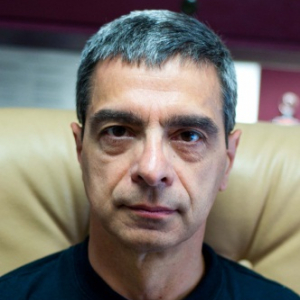
Salvatore Turco, PhD
Connect
859-323-6693turco@email.uky.edu
Positions
- Professor
Other Affiliation(s)
- Nutritional Sciences Graduate Faculty
Biography and Education
Education
B.S. Indiana University (PA) Ph.D. University of Pittsburgh
Research
Protozoan parasites of the genus Leishmania are responsible for a spectrum of human diseases, termed leishmaniasis. Depending on the species involved, leishmaniasis appears clinically in three forms: cutaneous, mucocutaneous and visceral, the last being fatal if untreated. The parasites have a remarkable capacity to avoid destruction in the hostile environments encountered in their life cycle, alternating between intracellular macrophage parasitism and extracellular life in the gut of the sand fly vector. As in other microbial pathogens, the development of genetic tools for the study of these parasites promises to help unravel the molecular details of how these microorganisms persevere under such harsh circumstances. Advances in functional genetic analysis provide a new avenue for identifying genes implicated in the parasite’s infectious cycle, such as those necessary for the synthesis and expression of the key surface virulence factor, lipophosphoglycan (LPG). LPG has been implicated in binding and release of the parasite in the midgut of the sand fly, resistance to complement, binding and uptake by macrophages, modulating macrophage signal transduction, resistance to oxidative attack, and, ultimately, allowing the parasite to establish successful infections. The overall objective of our research is to elucidate the genetic and biochemical details of the biosynthesis of the Leishmania lipophosphoglycan and related glycoconjugates, primarily through the exploitation of LPG-defective mutants using forward/reverse genetic protocols. This work is collaborative effort with Dr. Stephen Beverley (Washington Univ. Sch. Med). The functions of the proteins encoded by LPG genes recovered by genomic and bioinformatic approaches is a primary focus of our laboratory. These functions and eventual characterization of the encoded proteins will be determined through the development and use of in vitro enzymatic assays. From our studies, we hope to contribute to the understanding of the role glycoconjugates play in the pathogenesis of leishmaniasis and to provide a biochemical rationale for the design of chemotherapeutic regimens that exploit complex carbohydrate differences between those of the mammalian host and of the parasite.